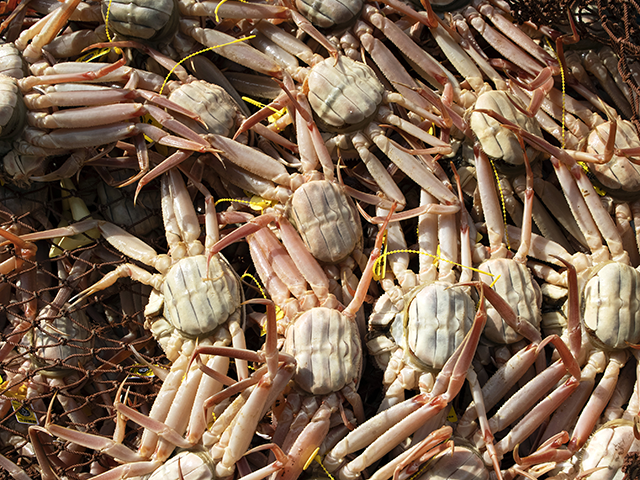Alaska officials have canceled the upcoming Bering Sea snow crab harvest season for the first time ever in an effort to combat the species’ population decline.
The cancellation of the season, which was days away from starting and was supposed to go into the spring of 2023, has now put many Alaska crab fishermen in a challenging financial position, with some possibly facing bankruptcy, according to Fox Weather.
Some experts within the crabbing industry believe the losses could total over $1 billion.
“These are truly unprecedented and troubling times for Alaska’s iconic crab fisheries and for the hard-working fishermen and communities that depend on them,” said Jamie Goen, Executive Director of Alaska Bering Sea Crabbers.
“Second and third generation crab-fishing families will go out of business due to the lack of meaningful protections by decision-makers to help crab stocks recover,” she added.
In their announcement of the cancelation on Monday, the Alaska Department of Fish and Game (ADF&G) stated their intention to directly focus on understanding why the crab population is shrinking, along with conservation efforts.
“Understanding crab fishery closures have substantial impacts on harvesters, industry, and communities, ADF&G must balance these impacts with the need for long-term conservation and sustainability of crab stocks,” said the ADF&G.
One of the reasons for the decline in population, some biologists believe, is that warmer waters and disease in the Bering Sea contributed to the shrinking number of snow crabs, according to Miranda Westphal, a biologist with Alaska’s Department of Fish and Game.
Westphal explained to Fox Weather:
In 2018 and 2019, the Bering Sea saw record high temperatures. And snow crabs are an Arctic species, so they are really only able to inhabit the Bering Sea because we have a lot of northerly winds push Arctic water down into the Bering Sea shelf[.]
Their metabolic demands were increased because they were in warmer water and many likely starved to death. They were also likely impacted by predators and disease[.]
A Bering Sea survey by federal scientists contains more bad news for Alaska, Washington and Oregon-based crabbers hoping for an upturn in upcoming harvests that last year fell to rock-bottom levels. @hbernton: https://t.co/8Gb33RofWn
— The Seattle Times (@seattletimes) September 9, 2022
According to federal survey results from this past summer, the population of mature male snow crabs has declined by 22 percent since 2021 — at 5.6 million pounds — which is the lowest figure recorded in over 40 years.
The cancelation of the Bering Sea snow crab harvest also coincided with Alaska officials calling off the fall Bristol Bay red king crab season for the second year in a row, the Seattle Times reported. Red king crabs are experiencing decreasing population numbers too.
You can follow Ethan Letkeman on Twitter at @EthanLetkeman.

COMMENTS
Please let us know if you're having issues with commenting.